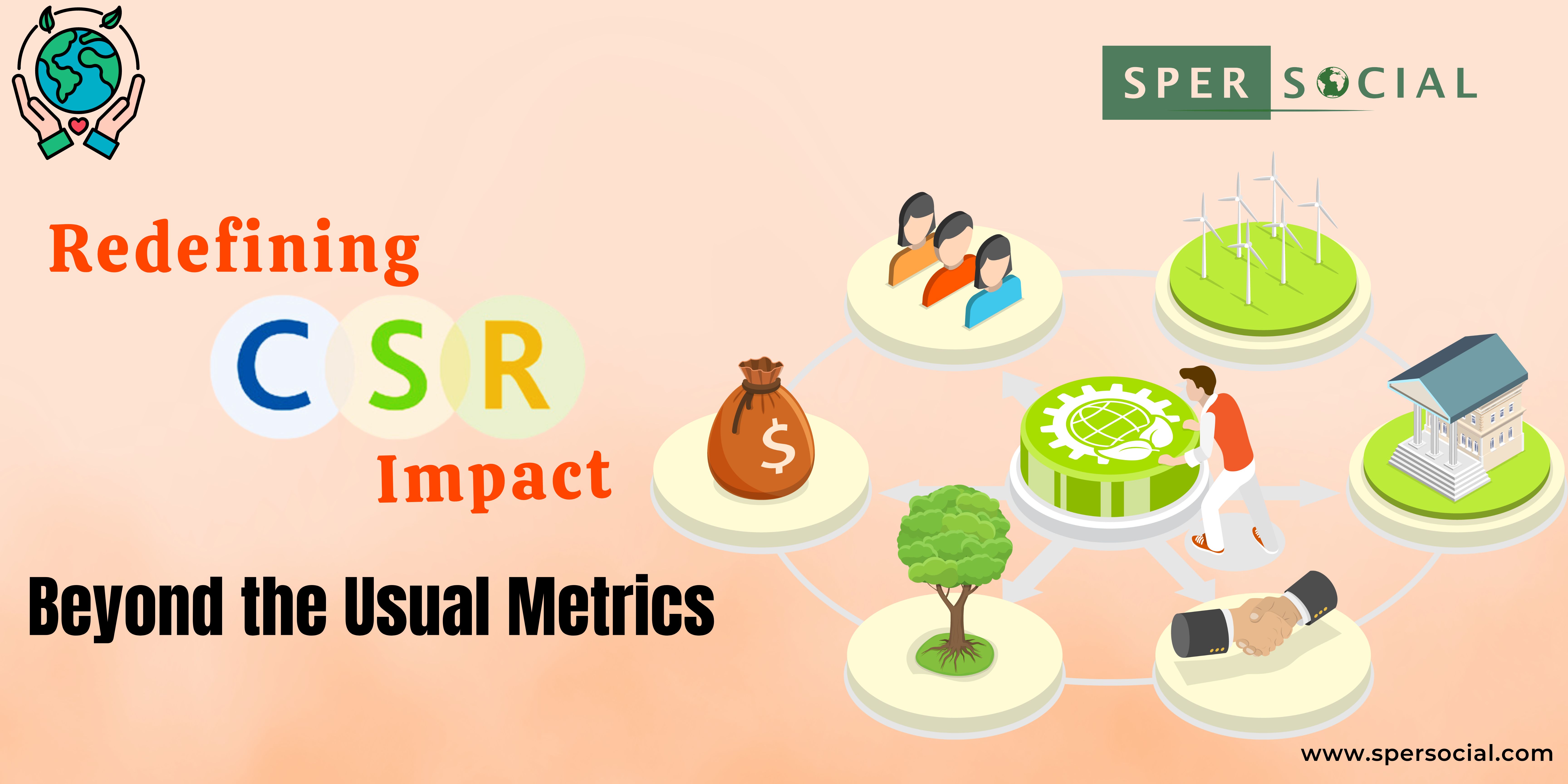
Corporate Social Responsibility (CSR) has evolved from a being just bureaucratic administrative requirement from assessing the actual merit of the strategic imperative to a moral imperative. After the post covid, the measuring metrics of CSR have been changed, some of the main drivers for value creation are carbon footprint, diversity, ethical conduct, & risk mitigation.
Consumers are more aware of the company's social & environmental impact. And the usual metrics that companies were using or performing to measure CSR are not enough. And by understanding this predicament, companies have modified their CSR activity by formulating a strong CSR strategy, it must be good for the world and good for business.
But the measurement is often mired in a rut. Traditional measures, like volunteer hours or charitable donations, are important but only part of the story. So how can companies redefine CSR impact and move beyond the usual metrics?
Shifting the Focus: From Outputs to Outcomes
Earlier most of the metrics companies used to do were only to be a part of CSR that they were doing, not caring whether it is leaving an impact or not. It was just for name’s sake that ok; we contribute to the CSR part. Before traditional metrics focused on outputs like Donated funds, volunteer hours, or trees planted are all outputs. But what truly matters is the outcome – the actual social or environmental change created by those activities.
Take an example, for instance, a company that donates money to build a school in a developing country. The number of dollars donated is an output. The outcome, however, is the long-term impact on the lives of children who receive an education.
Innovative Measurement Strategies
Here are some innovative ways companies can measure their CSR impact, moving beyond the traditional:
• Impact Storytelling:
Numbers tell part of the story, but compelling narratives that showcase the human impact bring CSR efforts to life. Consider any example like company X which is purpose-driven and does a social media campaign that empowers refugees. Metrics like user growth are important, but companies also share stories of refugees who connected with loved ones or found jobs through the platform, giving a deeper understanding of their impact.
• Social Return on Investment (SROI):
SROI allows a deeper understanding of social health that goes beyond financial returns, quantifying the social value created by an initiative. It considers factors like improved lives, reduced inequalities, or environmental benefits.
• Life Cycle Assessments (LCA):
For environmental impact, LCA helps companies understand the environmental footprint of their products and services throughout their lifecycle, from raw material extraction to disposal. Life cycle assessment makes the company make informed decisions for sustainability, which is the need of the hour.
• Stakeholder Engagement:
Engaging with stakeholders – employees, customers, and communities impacted by their business – allows companies to understand what matters most and tailor their CSR efforts accordingly. Surveys, focus groups, and open communication are key to understanding the needs of stakeholders & aligning their priorities into effective CSR initiatives.
Add Expert Insights
“The most impactful Corporate Social Responsibility (CSR) initiatives are those that seamlessly integrate social and environmental goals into a company’s core business strategy,” says Dr. Upendra Nagaich, Chief Executive Officer at SPER Social, a foremost expert in CSR and sustainability. “Rather than treating CSR as an isolated function, successful organizations embed it throughout their operations, creating shared value for both society and their bottom line.” The statement by Dr. Nagaich is truly something to think about.
The Road Ahead
A change in thinking is required for redefining how CSR result is measured. It is about going beyond short-term outputs towards long-term outcomes, considering social and environmental factors while engaging with stakeholders. Innovative companies embrace novel strategies of measurement to tell a more comprehensive story of the CSR efforts, not only showing the commitment to positive change, but also attracting stakeholders that share the same values and, in turn, result in a more sustainable and impactful future for both the company and society at large.
SPER SOCIAL
SPER SOCIAL, your premier destination for innovative solutions in Corporate Social Responsibility (CSR) and Environmental, Social, and Governance (ESG) initiatives. At SPER SOCIAL, we pride ourselves on our expertise, tailored solutions, global perspective, and commitment to long-term impact. With a passion for sustainability and a dedication to making a difference, we empower organizations to navigate the complexities of CSR and ESG with confidence and purpose.
#303-304, Tower B, Noida One, Sector 62, Noida, India
contact@spersocial.com
+1-347-460-2899
+91-959-915-8047
